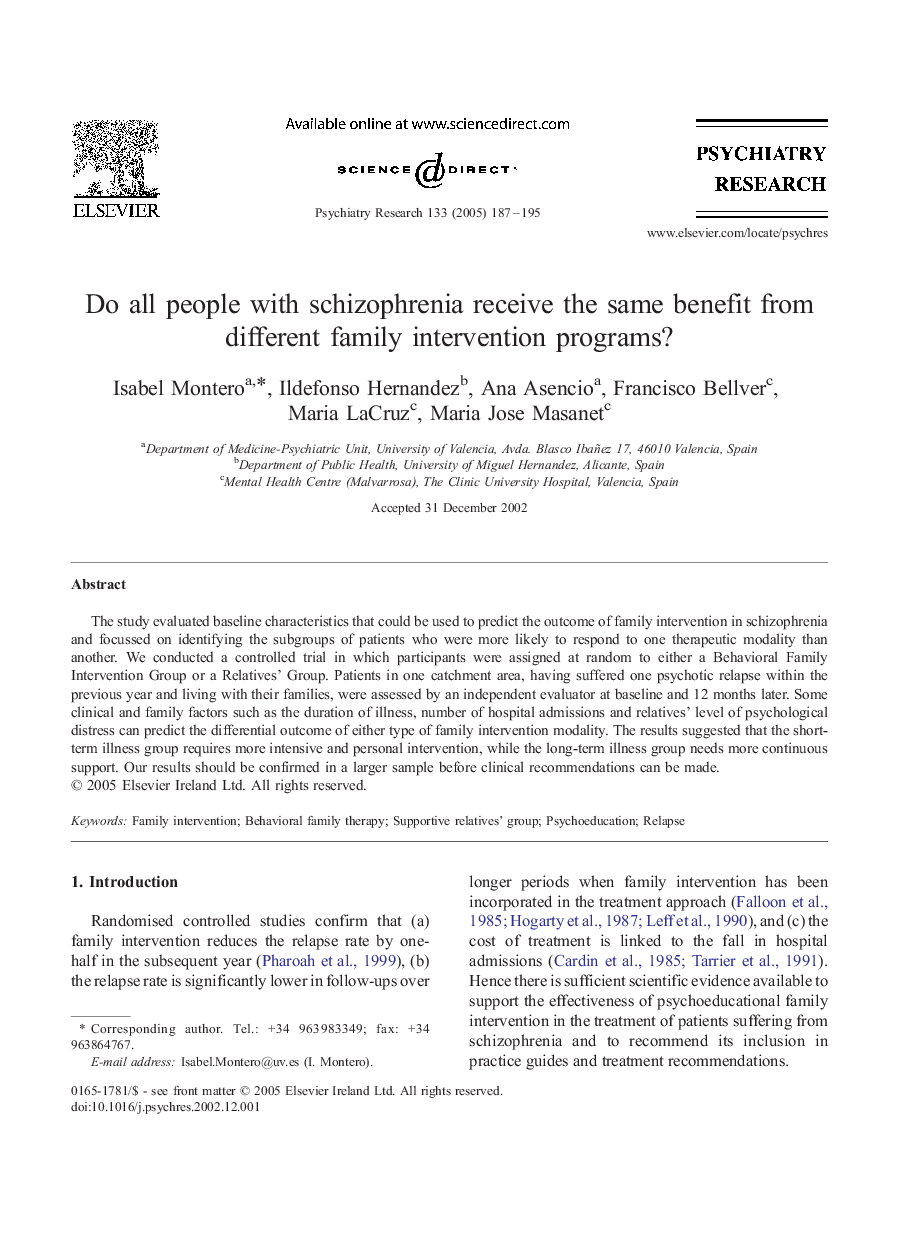| Article ID | Journal | Published Year | Pages | File Type |
|---|---|---|---|---|
| 9645994 | Psychiatry Research | 2005 | 9 Pages |
Abstract
The study evaluated baseline characteristics that could be used to predict the outcome of family intervention in schizophrenia and focussed on identifying the subgroups of patients who were more likely to respond to one therapeutic modality than another. We conducted a controlled trial in which participants were assigned at random to either a Behavioral Family Intervention Group or a Relatives' Group. Patients in one catchment area, having suffered one psychotic relapse within the previous year and living with their families, were assessed by an independent evaluator at baseline and 12 months later. Some clinical and family factors such as the duration of illness, number of hospital admissions and relatives' level of psychological distress can predict the differential outcome of either type of family intervention modality. The results suggested that the short-term illness group requires more intensive and personal intervention, while the long-term illness group needs more continuous support. Our results should be confirmed in a larger sample before clinical recommendations can be made.
Related Topics
Life Sciences
Neuroscience
Biological Psychiatry
Authors
Isabel Montero, Ildefonso Hernandez, Ana Asencio, Francisco Bellver, Maria LaCruz, Maria Jose Masanet,
